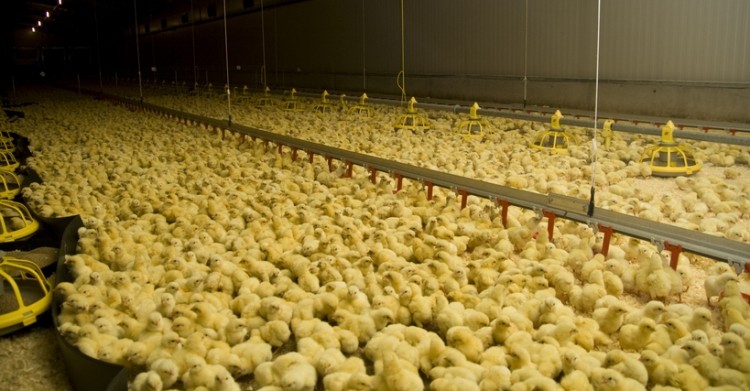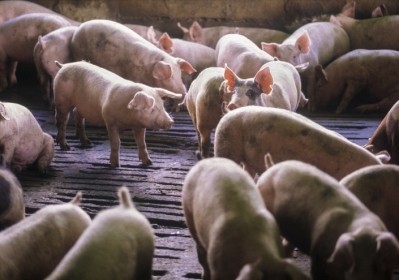DSM amends animal feed vitamin fortification guidelines

The Optimum Vitamin Nutrition (OVN) guidelines were last updated in 2016.
The revamped supplementation specifications allow producers to ensure they are feeding animals the optimal amounts of high-quality vitamins, appropriate to their life stage and growing conditions, according to Silvia Sonneveld, VP, essential products, DSM Animal Nutrition and Health (ANH).
Although proportionally vitamins make up only a small part of an animal's diet and cost, incorrect levels can have a huge impact on overall health, she said.
DSM worked closely with researchers, nutritionists, and the feed industry on the updated guidance, to ensure the tool reflects changes in the genetics and management of all farmed animals along with advancements in nutritional understanding.
“Setting optimum vitamin requirements focuses on fulfilling the genetic potential of animals which is improving year after year in a changing world where the use of antibiotics has been drastically reduced, where there is a higher incidence of animal diseases and where there is a growing focus on better immunity, animal welfare and reduced food loss and waste.
“Nutritionists decide on the fortification rates based on a variety of criteria; animal age, production phase, field experience, research trials, and so forth - the same kind of information used by DSM to develop the new guidelines.
“Animal performance, in general terms, keeps improving - on average more than 1% per year - meaning that animals produce more meat, eggs or milk with less feed. Levels of essential micronutrients as vitamins should be adjusted accordingly. This is most notable in the poultry industry, which required a 5–6% increase in recommended levels for most vitamins - primarily to reflect the reduced feed intake to reach target performance as well as new research for some specific vitamins and applications,” Sonneveld told us.
This optimization of animal health and welfare directly impacts the performance quality and the nutritional value of animal-origin food, she said.
“Suboptimal vitamin levels can have a huge impact on overall health, putting animals at risk of developing clinical deficiencies and disorders. Achieving the optimal vitamin levels removes many of the roadblocks to good performance, health status and sustainability.”
But it´s not only about levels, it´s also about using quality and sustainable vitamin forms, said the spokesperson.
“For instance, using a vitamin A form which is not stable in a premix or feed, animals might be receiving only 50-60% of what the nutritionist has indicated, potentially jeopardizing animals’ health and performance. By following the OVN guidelines, producers can see a tangible impact on both efficiency and performance.”
Vitamin prices
Higher energy and transport costs led DSM this week to increase vitamin prices for products produced in Europe.
Sonneveld weighed in on that:
“Wherever possible, we have absorbed cost increases linked to the energy crisis in Europe. However, as of November 1, we’ve had to introduce a price increase for vitamins produced in Europe to secure future supply as production costs continue to rise.
“In the context of current challenging market conditions, protecting our vitamin production in Europe and, thereby, offering supply optionality for our customers is paramount for securing long-term efficiency, sustainability and food security for our customers, stakeholders, and the planet.
“With energy prices up 80% there will be downward pressures on margins, and we are committed to helping producers optimize feed costs, which make up between 50%-80% of their operating expenses, through our nutrition solutions and technical service support.”
Trading update
Management is confident in the mid-term financial targets for DSM, confirmed the representative, following the release on Tuesday of the company’s trading update for the first nine months and Q3 2022.
DSM has lowered its full year 2022 outlook, and now expects its adjusted EBITDA for continuing operations - health, nutrition, bioscience, and corporate activities - to increase by a low-single digits.














